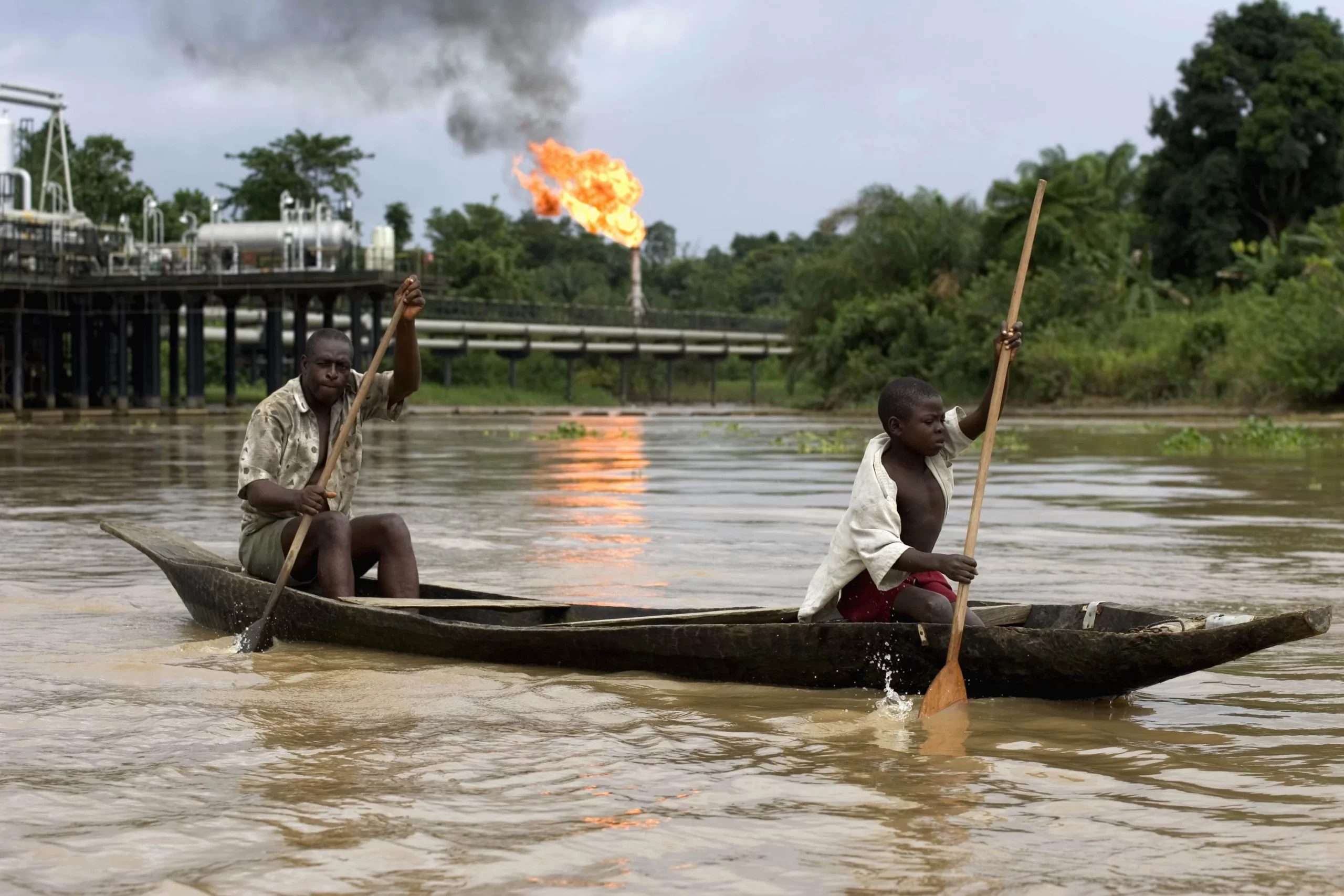News
Oil spill, piracy crippling fish business – Fishermen count losses

Fishermen in the coastal community of Ibeno Local Government Area of Akwa Ibom State have continued to count losses as the activities of sea pirates, as well as oil spills continue unabated in the area.
They narrated horrific experiences encountered during fishing expeditions, especially with pirates’ attack and hazardous nature of gas flaring.
All these hiccups have culminated in the scarcity of fish and hike in the price of the few available ones.
PRESSINFORMAT reports that this has made eating fish in Akwa Ibom to be like living at the bank of a river and washing hands with spittle.
Ibeno, one of the coastal oil producing communities in Akwa Ibom State with a sole occupation of fishing, occupies over 1,200 sq. kms of land stretching from Okposo I at the eastern flank, bordering Mbo Local Government Area and Bakassi Peninsula to Atabrikang village on its Western flank.
It is bounded in the South by the Atlantic Ocean and shares a border with Eket, Esit Eket, Onna and Eastern Obolo local government areas.
Ibeno plays host to the Mobil/Exxon QIT terminal where crude oil is processed for export all over the world, though the oil giant has announced plans to sell its assets to Seplat in order to move into deeper waters.
The activities of the multinational company, no doubt, have impacted negatively on the community’s source of livelihood which is fishing and had brought untold hardship to the people which made the community call on them to clean up the mess in the community before divesting.
In a capacity building workshop organized by the Health of Mother Earth Foundation, HoMEF at Okoro Utip hall, Ibeno, members of the community took turns to express their pains over the incidences of piracy and oil spills which have greatly affected them.
One of the fishermen, Ukeme Walter lamented that fishes and other aquatic foods are dying due to oil spills, explaining that the few left have moved down to the high sea which is very risky for fishermen.
According to him, “We don’t have good access to our businesses in terms of fishing, gas flaring is disturbing our water a lot. Before now, the fishes were close to our ocean but because of pollution, you now need to move into the high sea, which takes several litres of fuel.
“Sometimes, if you go to the sea, you may not even see the fish and the ones caught when sold would not even cover the expenses you made so far.”
He added that apart from killing fishes in the ocean, oil spills affect their nets and engine boats.
According to him, “the oil in the water spoils our nets which is very expensive and we go on repairing engines. Sometimes, if you cast your net in the water, you will not be able to catch fish due to gas flares in the water.”
Narrating his ordeal in the hands of sea pirates, one Ime Ben revealed that the hoodlums always strike whenever the sea storm rises.
“When the sea storm rises, we divert to where we could land safely; they would come there, attack us and take away all our belongings such as net, boat engine which cost about three million Naira each, they always attack around 2 or 3am when our men go out fishing.
“When we move to water, they go to the boundary between Nigeria and Cameroon; some of them they will collect the engine and the boat, some of them, if they like you, they will carry you and drop you where you can come out; some of them they will ask you to jump inside the sea and you know you cannot swim in such a magnitude of water even though you know how to swim; a lot of people have died,” he said.
Speaking at the workshop, Stephen Oduware, Project Lead for HOMEF regretted that the people in the coastal region, despite their natural resources being exploited to feed the nation have not gotten benefits commensurate with what they have offered.
He urged them to organize themselves to demand their rights from relevant authorities, enumerating the rights to include among others: the right to health, decent occupation and a healthy environment.
Oduware said, “This is a call to the government because these people are among the most under-represented and under-served. So, the government should do more to protect these people and their businesses. They should provide the necessary infrastructure needed by them to make their businesses thrive; they are the ones feeding the nation.
“Information is key, we cannot do everything. We are advocating for a proper structure like a port, where fishermen will have access to freezers, modern drying cans, and a good storage system, among others.”
On her part, Obongawan Emem Okon, the Director of Kebetkache Women Development and Resource Center decried the effect of oil spills and gas flaring, particularly in the Niger Delta region, stressing that these have negatively impacted fishermen and their businesses.
Okon said she was no longer advocating for empowerment for women, rather women from the riverine communities should be enlightened enough to ask questions and demand for their rights and entitlement.
She called for legislative backings for such demands.
She added, “women also play a key role in fishery business, therefore, the government should urgently support them.”





